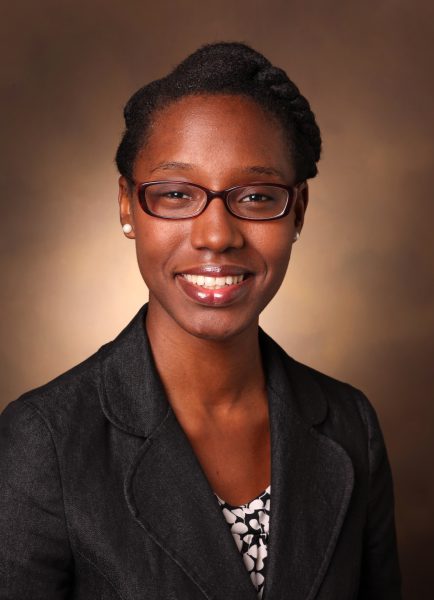
“If you want to make a difference in the world, meet a need,” Amanda Headley Piper’s grandmother once said, and Piper heeded those words of wisdom. She is the first pediatric audiologist from her twin-island home of Trinidad and Tobago, where she provides early diagnosis, intervention and support for babies and toddlers with hearing loss.
“Once we provide children with access to hearing technology and abundant, clear sound early in life, they can develop speech and language—no matter what their degree of hearing loss,” Piper says. She notes that the critical window of time is birth to 3 years old.
“I had never met an audiologist or even had my hearing checked while growing up in Trinidad,” Piper says. “However, my brother-in-law is deaf; he lost hearing in the 1980s due to a bacterial meningitis infection as a toddler. That had a profound effect on me, especially since there were no pediatric audiologists in Trinidad at that time to help him.”
Piper earned her doctorate in audiology from the Vanderbilt School of Medicine after completing her undergraduate education at University of North Carolina-Greensboro, where one of her professors encouraged her to “have a little faith” and apply to Vanderbilt.
Piper describes her doctoral experience as one of the best times in her life. The support she received from her professors was outstanding and unforgettable. Working part-time in Associate Professor Benjamin Hornsby’s and Professor Emeritus Fred Bess’ research labs proved to be rigorous, fun and rewarding. Her professors and clinical supervisors gave her the expertise and confidence to excel as an audiologist. Additionally, the breadth of exposure to complex patient cases at Vanderbilt prepared her well. “At first, I was concerned whether I would see a remarkably diverse population in clinic,” she says. “I saw every disease and syndrome under the sun, with patients coming from all over Tennessee, the 50 states and abroad.”
After returning to T&T, Piper intentionally spent months meeting with pediatricians, neonatologists, nurses and speech therapists all over the island to sensitize them to the importance of early hearing detection and to build a collaborative team of like-minded professionals. Subsequently, there was a drastic improvement in the age at which children with hearing loss were identified and received intervention. Infants as young as 5 months are now being fitted with hearing aids at the Trinidad & Tobago Association for the Hearing Impaired, where Piper currently works. In the future, she hopes that local otolaryngologists can get specialized training to perform cochlear implant surgery, so families do not have to seek expensive medical care abroad for this life-changing procedure.
Piper credits Anne-Marie Tharpe, professor of otolaryngology and hearing and speech sciences, with fostering her love for pediatrics. “Dr. Tharpe prepared us to be sharp, intuitive and practical when it comes to working with young children: Grab a toy, blow some bubbles and observe the child. We’re testing more than just ears … it’s a whole child. She made pediatrics relatable.”
—Ann Marie Deer Owens